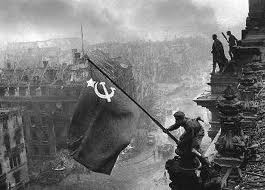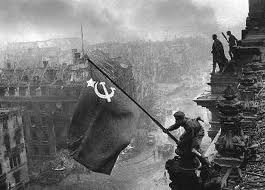We thank them for the happy occasion we had to hear from so many great scientists and people who took part in World War II. Definitely, we won a lot!
First of all, Mr. Adamou, MP, addressed a greeting on behalf of the Speaker of the House of Representatives. Then, the President of the Pancyprian Association of Warriors of World War II, Mr. Loizos Dimitriou, in his own greeting made an extensive presentation of both wars.
The coordinator of the Morning Session that had the general title: "The causes and consequences of wars for man, for the states, for the world" was the professor of Panteion University Mr. Stelios Perrakis, who stressed that he considers it an exceptional privilege to be coordinator of this conference, and thanked the Parliament for its honorary and kind invitation.
The first speaker was Mr. Hagen Fleischer, Professor of Modern and Contemporary History, Department of History and Archeology, University of Athens, who is well known for his books on the period of World War II, who spoke about the causes of wars, and, with his kindness, humor and immediacy, he fascinated us. He described World War I as the "Big Bang" of modern history. After making a historical review of the course of European countries, he reached the "Ribbentrop-Molotov" agreement.
Then, the professor of Economics of the University of Cyprus presented the economic misery brought to Europe by the two great wars, while Mrs. Maria Giavouneli, Assistant Professor of International Law at the University of Athens referred to the environmental consequences of these wars.
The afternoon session was opened by the excellent Mrs. Eleni Glykatzi Arveler, President of the University of Europe, who referred to the violation of human rights in these wars. I liked some of the phrases he mentioned, so I quote them: "The destroyers of cities are considered heroes, but they can not be considered great men." Voltaire. He added: "I look forward to the time when a hero will not kill his opponent, but will only fight for human rights." Pascal Mercier, Professor of Philosophy.
Mrs. Arveler also referred to the various practices of wars, such as the uprooting of populations called "injury", a situation that Hellenism has experienced many times, from antiquity until today, while she also spoke about the "Cain syndrome", the civil wars. , and ended in religious wars. Finally, he reminded us of the following phrase: "When I hear the word culture, I take out my revolver." Maybe, now, we say: "when I hear a revolver, I bring out my culture". Indeed, listening to Mrs. Arveler made us happy.
The second speaker in the afternoon session was the professor of Panteion University, Mr. Stelios Perrakis, who spoke about the right to peace and wondered if it was the search for utopia.
But according to Le Corpusier, "what was a utopia yesterday is a reality today." Mr. Perrakis focused on "Solidarity Rights", the "third generation" rights, about which, as he told us, Mr. Vazak's mentor was the first to speak. Undoubtedly, he concluded, in our time the "culture of peace" is cultivated, but in the 2500 years of world history, we have had peace for only 200 years.
It is especially worth talking about the distinguished Poet, Mr. Tito Patrikios, who, with his sweet and kind presence, taught us lessons of dignity, objectivity, impartiality. His theme was: "Writing poetry after Auschwitz". He started by claiming that those who survived the concentration camps have guilt, since the creation of guilt is a means of enforcing any power. He even mentioned Theodore Adorno, a Jewish composer and professor who wrote: "How can we write poems after Auschwitz?" or "writing poems after Auschwitz is barbaric."
Of course, without survivors, he stressed, we would not have testimonies, but only those who write according to the requirements of each power or ruling class. That is why the survivor is "annoying", as he characteristically said. I was terribly impressed by a detail that escaped me: that no one committed suicide in the concentration camps. And this is due, as Mr. Patrikios interpreted it, to the fact that hope was stronger than the fear of death, reminding us, I add, of Victor Frankl in his work "In Search of Meaning of Life and Freedom in a Concentration Camp." .
To defend his view of the people of art acting in accordance with the dictates of power, he cited as examples the poems that Soviet poets had to write after Stalin's death in 1953, or the portrait of Stalin by Picasso. , but was forbidden, because he presented him as a savage young man and not as a general.
At the same time, he stood by the authoritarian power that forces artists to publish their work much later, such as Ritsos, Aris Alexandrou, Tassos Livaditis and the same who transferred their experiences from Makronisos much later. He also spoke about the cases of Boris Pasternak who died in 1960, without seeing his work published in Russian, and Solzhenitsyn who was exiled for his work: "A Day in the Life of Ivan Ivanovich".
Finally, he concluded that the 19th century, despite wars, massacres, colonialism, had no Gulag, nor Auschwitz, that is, powers were more tolerant.
The next section in the afternoon session was the contribution of Cyprus to the two World Wars, with the first speaker being the Associate Professor of History at the University of Cyprus Mr. Petros Papapoliviou who referred to the Cypriot volunteers in these wars. Initially, Mr. Papapoliviou stressed the oxymoron of the name volunteers, since most of them received a salary.
At the core of the volunteers in the First World War were the experienced volunteers of the Balkan wars of 1912-13 who once again ran at the call of Mother Greece to fight for the honor and dignity of our Nation.
In 1916 many were classified as semi-guides for the needs of the allied troops on the Macedonian front. Among them were 1000 Turkish Cypriots, an 11% of the total "mules", as they were called at the time, who fought against the Ottoman Empire. In Cyprus at that time the phrase was heard: "he went to the mules". A part of the Cypriot mules later enlisted in the Greek army and, in fact, five of them fell in the bloody battle of Skra. In total, from 1916-19 there were 30 fallen Cypriot volunteers.
Cyprus was the first colony to send men to war during World War II. They were the CVF, Cyprus volunteer Force. The Cyprus Constitution consisted of 12,192 soldiers. In 1943 AKEL called its people to mass mobilization. Let us not forget the conditions of unemployment and misery in which the people lived at that time, due to the war, so that the families would also live on the salary of the soldiers. Of these soldiers, 2059 were taken prisoner in Nazi camps, mainly in Greece, about 1/6.
It is worth mentioning that there were 778 women, such as Theodora Ioannou Kaskani who was killed in 1943 in Egypt. The well-known Famagusta Evangelos Louizou also fought in Egypt. The Cypriots were also found on distant continents, such as in the USA, 36 men and in Australia, 135. In general, there were 360 deaths, 308 by the Cypriot Constitution, 35 volunteers and 17 who served in the British army, while they are buried in many cemeteries in several countries of the world.
The next speaker was Mr. Christos Kourtellaris, a veteran of World War II who told his own story and his own experiences.
The most shocking but at the same time creepy part of the conference was at the end with the presence of people who lived through the atrocities of the war. It was entitled: "The most tragic pages of World War II". Presented were Ms. Colomba Jivre, a survivor of the Auschwitz concentration camp, and Mr. Keiziro Matsushima, a survivor of the atomic bomb in Hiroshima. Absolute silence prevailed in the packed room when Koloba Tzivre, a Greek Jew, described the horror she experienced with her sisters in Birkenau, a concentration camp near Auschwitz. Both speakers gave their anti-war message, wishing that the world would never experience such tragic moments again.
Closing the presentation of this Conference, so remarkable, I would like to quote the words of Benjamin Franklin: "There is no good war, but no bad peace." We, let the people hope not to catch the "old deceit of the gods" again and not to fight for "an empty shirt, for a Helen".
Mrs. Zina Lysandrou is a Philologist

